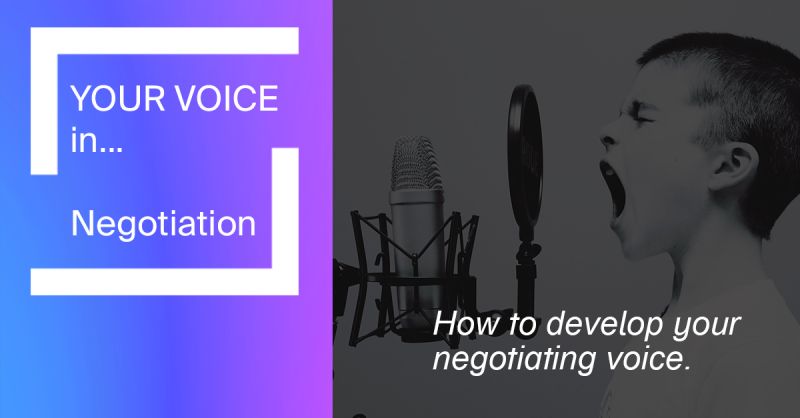
In English, we all know that the same words said with different inflections can mean very different things. Subtle characteristics of speech, specifically voice pitch, is known to have a significant impact on our perceptions of a person.
Speakers can learn to modulate their pitch of voice. A well-known historical example is former UK Prime Minister Margaret Thatcher’s voice pitch. It is said that receiving training on how to modulate her voice helped Thatcher accelerate her political career.
How you use your voice is equally important in negotiation. Depending on context and whether or not you want to put your counterparty into a collaborative frame of mind, your tone of voice will immediately begin to impact on the other party’s mood and how they perceive and interact with you.
OKAY, BUT HOW?
Deepen your voice tone
Research indicates that males and females with lower-pitched voices tend to be rewarded with authority and career advantage. They are perceived as being more dominant, more respected, more competent, and more likely to be followed. This may be achieved by dropping your regular voice tone by two registers.
Pacing your words firmly and slowly with downward voice inflexion is particularly useful for negotiators when you want to emphasise a point or have the other party feel no movement is possible on an issue. Check out how well this was achieved in major speeches by Nelson Mandela and John F Kennedy.
Note that raising voice volume is not effective as it triggers part of the brain that makes people angry and want to fight. Also note for both genders that higher-pitched, speedy voices may be associated with negative emotions such as panic, fear and stress.
Put a smile in your voice
Scientific data evidences that our brains work more effectively if we are in a good mood. There are mirror neurons in our brain over which we have no control, they respond automatically. When negotiating if I smile at you and you see it, it puts you in a better mood.
You can also hear a smile in my voice and sense that you like me even though you can’t see me. This helps put your counterparty in a good mood and their brains will begin to work more effectively. And liking you increases the prospect that they will collaborate with you. So, put a smile on your face even when on the phone.
However, do be wary of inappropriate (false) cheerfulness which may raise suspicion or, even worse, that you are being condescending.
Inflex your voice upwards when asking questions
When negotiating, asking questions is a critical skill. In our ENS workshops, we train negotiators in the use of an important, disciplined Questioning Technique that helps guide the other party’s thinking.
However, the other party may feel attacked and become defensive when you are questioning them. They will feel less attacked and will want to cooperate if they sense you are being genuinely curious and wanting to understand their viewpoint. This can be achieved if you inflect upwards when asking questions. This upward inflection together with a smile (not a grin) will encourage them to open up and you will most likely learn a lot more about the matter being reviewed.
It also helps if you reveal (appropriate) information yourself. Due to the social urge to reciprocate, modelling your willingness to provide information significantly emboldens the other party to do the same.
Gain the Edge
Practice these three pointers for developing your negotiating voice and you will be surprised at the results. Remember to:
- Deepen your voice tone
- Put a smile in your voice
- Inflex your voice upwards when asking questions
To discuss this article in more depth and explore developing your negotiation capabilities, please contact us on the form below.









